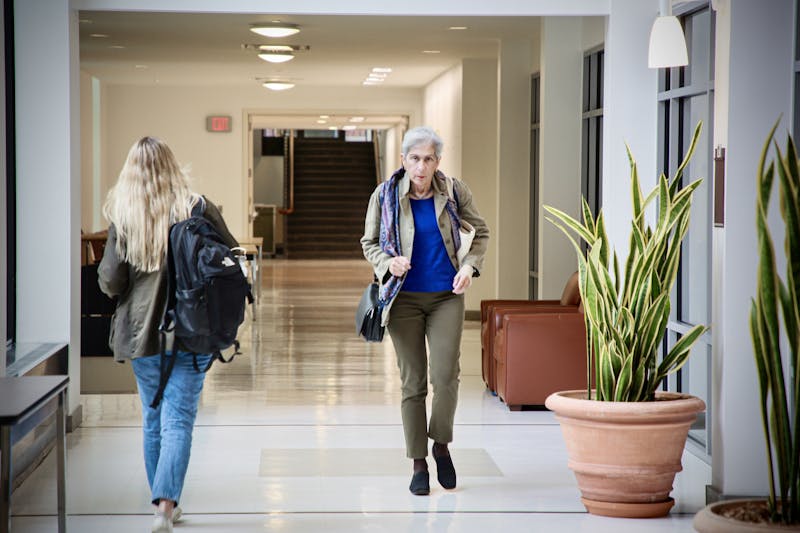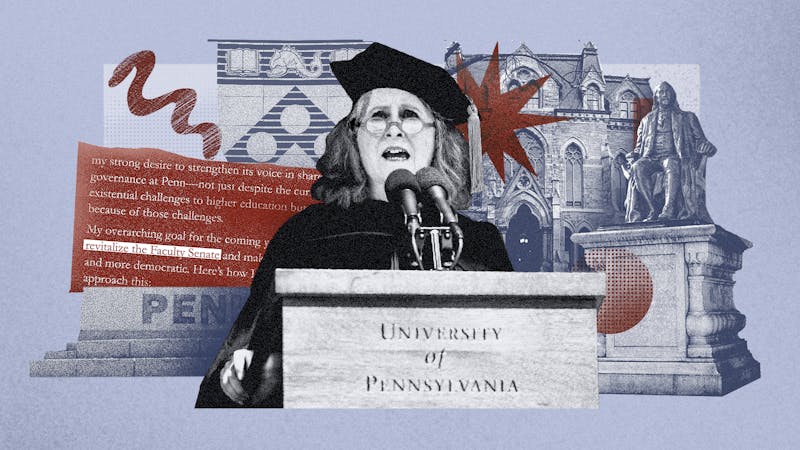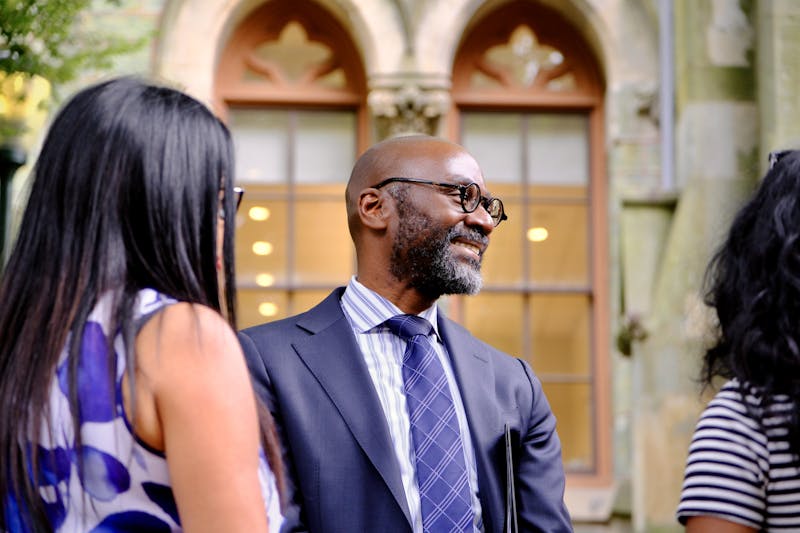
When Philadelphia's public school students head back to class next week some of them will be a part of one of the most ambitious -- and controversial -- school development programs in the country.
As the Philadelphia School District opens again on Sept. 5, some students will be entering schools managed by private organizations, one part of the city and state's joint efforts to rehabilitate the long-ailing school district.
Earlier this year, the School Reform Commission granted 45 of the city's worst performing public schools to outside management companies, most notably the for-profit Edison Schools, Inc.
But this -- the largest privatization scheme to date -- is one of only several changes that have been made to or occurred within the district over the last few months.
The entire district will be overseen by Chief Executive Officer Paul Vallas, who was appointed to the position in July. Vallas held the same position in the Chicago school district during reforms there.
Penn Vice President for Budget Analysis Michael Masch, who is also a member of the SRC, has always been wary of some of these changes. But he still expressed hope that things were at least moving forward.
"There's a lot of energy going into reforming the school system," Masch said. "There's a lot of different people working on this, and hopefully we'll be able to figure out the best ways to run a city school system."
But pitfalls still abound. A coalition of parents and teachers, for instance, say privatization is actually infringing on their rights.
Last July, the coalition brought a suit against the city and school district claiming that the decision to privatize is unconstitutional, among other complaints.
The suit went up to the U.S. Third Circuit Court of Appeals, where a decision is still pending.
Recent focus has also been placed on Edison's own struggles. The company will operate 20 of the 45 privatized schools, the largest number of schools they hold in a single district.
While Edison stocks reached nearly $22 in January, the price saw an enormous decrease in value after the city's decision to turn over fewer schools than originally expected to the company. At the close of the market yesterday Edison stock value was at 50 cents a share.
The company was rescued from fiscal disaster last June with $40 million in loans from two investment firms.
The financial problems of Edison were compounded when the company requested an additional $20 million -- $1,500 per student -- from the city. The city compromised on an $880 increase per student in the 20 Edison schools.
Mayor John Street, who has been an opponent of the large privatization plan in the past, still remains uncertain of Edison's abilities.
"There continues to be great concern over [Edison's] fiscal stability," mayoral spokesman Frank Keel said. "It's difficult enough to deal with new partners and expectations. To factor in instability is a cause for concern."
Masch noted that "they don't have a magic formula for making schools better," adding that "the most generous analysis would say [Edison] had improved things only 60 percent of the time."
However, Keel said that Street was willing to "give them the opportunity to succeed."
The Philadelphia contract with Edison enables a "turn-key" clause, in which the city would regain the properties and control if Edison were to be unable to maintain the schools.
The turn-key clause "mitigates some of the concerns," Keel added.
But the turn-key clause does not alleviate all concerns, as the city of Dallas just opted out of their Edison contract two years early. The Independent School District of Dallas will end its relationship with the managerial company next June.
"Their achievements were not as good as some of the other schools in the district," Donald Claxton, spokesman for the Dallas Independent School District, said. "They did make some gains, but they were not that significant, and they were receiving 10 percent more than any of the other schools."
Edison was only operating seven elementary schools in Dallas but Claxton said that the city "wasn't getting the value or the cost [the city] needed."
The Daily Pennsylvanian is an independent, student-run newspaper. Please consider making a donation to support the coverage that shapes the University. Your generosity ensures a future of strong journalism at Penn.
DonatePlease note All comments are eligible for publication in The Daily Pennsylvanian.







